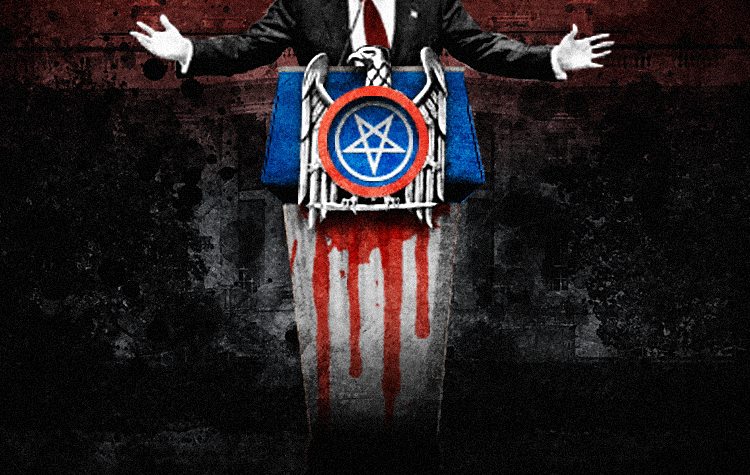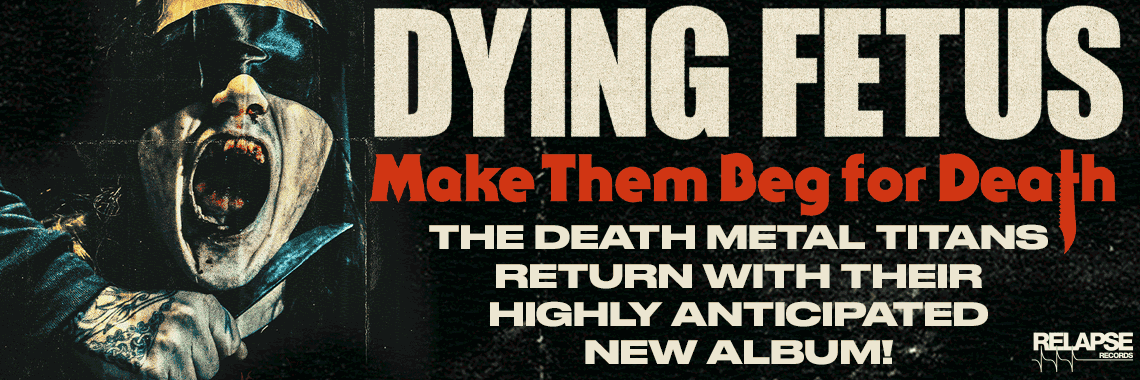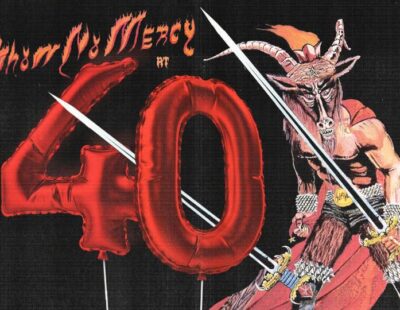
Fellow Americans, the day has finally arrived. After one of the worst political seasons in our nation’s history, we’ve reached Inauguration Day. It’s one of those ceremonial political events we’re conditioned to revere as significant, lest we break the spell of grandeur the powerful have over us. Much like the State of the Union address, it’s largely a meaningless procession of pomp, bravado and histrionics.
But for obvious reasons, this year feels different. Those opposed to the new President are dismayed at the prospect of what Arthur M. Schlesinger, Jr. once called “The Imperial Presidency.” Those ecstatic about his ascent to power seem ever more ready to abandon their principles and surrender to his cult of personality. This article won’t focus too much on the current and upcoming fights about his policy proposals. There are other outlets better suited to those discussions.
How should extreme music fans reflect on this day, regardless of their political affiliations? Metal has no uniting, cohesive political message or overriding partisan consensus across all listeners. Nor should it. Metal tends not to get involved in specific matters of current events. To the extent that it does, the message is usually borrowed from punk and hardcore. So with that in mind, what does metal tell us about the function of political power?
On it’s face, much of extreme metal seems rather nihilistic. Or in the case of thrash and grindcore, it comes across as more fatalistic, looking to war, genocide and armageddon as inevitabilities. Art in general is not a prescriptive rulebook. Subordinating it to an explicit political agenda renders it into feeble propaganda, as enduring as a leaflet thrown in the trash. However, one thing we can take from extreme metal is a sobering realism about life and the world.
Despite whatever technological and cultural advances we’ve made, we are at the mercy of an indifferent universe, with natural forces and pathogens that care little about us. We continually live in fear of death, the dark, our own dreams and the supernatural. The meaning of life is unknown to us, despite our desperate wishful thinking. And with respect to each other, we are monstrously violent, cruel and hateful – “ungrateful, fickle, false, cowardly, covetous” in Machiavelli’s words. While much of the world of art and music is designed to help us escape these truths, extreme metal does the exact opposite.
This is the core artistic value of extreme metal. Death metal bands like Entombed, At the Gates and Carcass force us to confront mortality, decay and carnage. Black metal bands like Darkthrone, Marduk and Beherit take the listener into the dark world of the occult. Doom metal legends like Paradise Lost and My Dying Bride are uniquely adept at capturing mourning, loss and despair. It’s grim, but cathartic. A little ridiculous sometimes, but this over-the-top nature can also be a powerful asset. It makes a point like few other art forms can. But it’s through this supposed “negativity” that we can derive a more clear-minded view of the world, without the false cheeriness of “live, laugh, love.”
But what does this have to do with Inauguration Day?
We should be ready to apply the same cold realism to politics. After all, why does the state exist? Our 11th grade civics classes often teach us that it’s there to provide public service in the grand spirit of our founding fathers. While there’s nothing wrong with individuals trying to aspire to this ideal (the Leslie Knopes of the world), the reality is somewhere between kind of bleak and very boring.
The state formalizes how we arrange ourselves in a society. In short: it’s there to protect and project a set of interests (e.g. territorial, economic, social). How it operates can be adjusted by ideals, but its existence depends on the realistic needs to use force: to protect borders, levy taxes and enforce laws…including terrible ones. We give it authority through our explicit consent (through voting) and tacit approval (by not moving somewhere else). But it’s power comes from the monopoly on physical violence. In a way, this makes the state…well, kind of evil. But it’s a necessary evil that allows civil society to exist. However, when it’s given too much power, particularly in the hands of one person, it will inevitably crush civil society.
Therefore, we should not admire or be “inspired by” our President, no matter who it is. Unlike many European heads of state, our President is also head of government. His power is limited by our Constitution, but has steadily expanded during the last few administrations. Of course, this has all been to the ignorant cheers of partisan supporters who say he’s there to Get Things Done™. People always fail to consider: “Gee, we’re making a lot of excuses for this guy, and we’re giving him a lot of power that no person should EVER have. I’d hate to see what someone wicked would do with this.” No, it’s always: “But he’s so cool and charming! Gee, I’d love to have a beer with him! Look at this meme of him doing something funny! Stop hating America!”
It’s heartening to hear liberals pledge to be a stern, forceful roadblock to executive power, with arms-length skepticism of the President’s motives. This is the right attitude to have at all times, no matter who the President is. The mainstream press seems suddenly able to fulfill this role as well (i.e. do its job). It’s deeply depressing, though not surprising, to watch many (not all) conservatives resign themselves to making excuses, as they abandon every principle of limited government in exchange for economic interventionism and petty populism. In other words, the two factions are ready to switch places like they always do. In this sense, who is President is almost beside the point.
Human beings are imperfect. Though some people are clearly worse than others – we all think about, say and do terrible things every day. We should not hold each other hostage to our imperfections by setting someone up as our national demi-god. Sure, we give leeway to our friends and family. And that’s fine. But the President is in a position of power, which makes the relationship very different. If we all uphold some misplaced, unspoken reverence for him (like that given to a medieval monarch), this has dire consequences – and not just at the ballot box.
Some of us actually get into positions where we can influence the President (e.g. the cabinet, congress, various bureaus). And if you carry a mawkish, romantic fantasy of Presidential glory, you might be poorly equipped to challenge that next drone strike, that wire-tap of a civil rights leader, or a break-in at the headquarters of the political opposition – not to mention show trials, executions and wars of aggression.
If we want to be sympathetic to the President for a moment, it’s also kind of unfair to load so many hopes, dreams and expectations on one person. With all the terrible things the job requires (what the pundit class calls “tough decisions”), we shouldn’t count on angels sitting where devils can do so much damage. Humans are narcissistic enough as it is, we’d be wise not to encourage it in the person who controls our nuclear arsenal.
My point is, don’t invest too much emotional energy into Inauguration Day. Everyone likes a good piece of rhetoric, myself included. But that’s all it is. Political speeches are theatrical “messaging” operations, no matter who delivers them. The President is the head administrator of our government and military commander-in-chief. Any notion of the President being “the spiritual guardian of America’s promise” is just childish, leader-worshiping drivel. Again, one of the things that makes extreme music great is its ability to brutally smash our romantic illusions about life. We’ll need some of the same cold stoicism to get us through the next four years.






